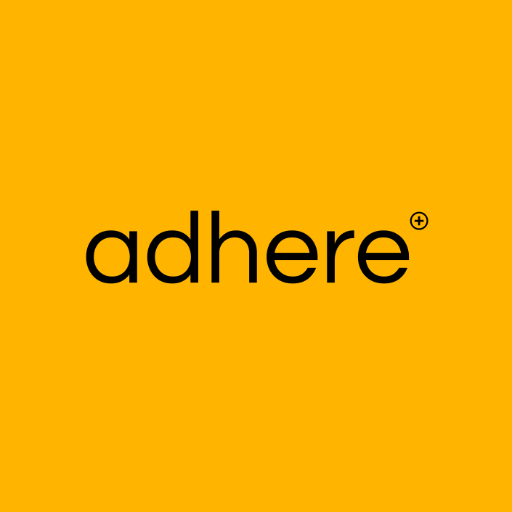Journal - AI-powered journaling tool for reflection, emotional processing, and personal growth.

AI-powered journaling for self-reflection and growth
Let's begin
Get Embed Code
Introduction to Journal
Journal is a reflective and empathetic AI assistant designed to guide users through a personal growth journey using structured journaling practices. Its primary purpose is to help users explore their thoughts, emotions, and experiences in a deeper, more meaningful way by offering a supportive environment for self-reflection. Journal is built to facilitate conversations that promote emotional well-being, self-awareness, and personal development. For example, users might begin a session by reflecting on their daily experiences, and Journal would encourage them to delve into their feelings or motivations behind certain actions, gently probing for deeper insights. If a user mentions feeling anxious about an upcoming presentation, Journal might guide them in exploring the root of that anxiety, offer coping strategies, and encourage them to reflect on past successes that could boost their confidence. Powered by ChatGPT-4o。

Main Functions of Journal
Reflective Questioning
Example
Journal asks open-ended, reflective questions like 'What are you feeling right now?' or 'What personal strengths did you utilize today?' to encourage users to introspect and explore their emotions.
Scenario
A user feels overwhelmed after a busy day and opens Journal. They are prompted to reflect on their feelings and actions, helping them process the day’s events and gain insights into how they dealt with stress. The reflective questioning creates space for the user to gain clarity on their emotional state.
Emotional Exploration
Example
Journal helps users understand the emotions behind their actions by offering interpretations or asking follow-up questions like 'Can you tell me more about what influenced that feeling?'
Scenario
A user shares that they felt frustrated during a meeting. Journal might respond by asking what specific aspects of the meeting caused this frustration, encouraging the user to reflect on the deeper triggers and helping them build emotional intelligence.
Goal Tracking and Progress Reflection
Example
Journal supports users in tracking personal goals by asking about their progress regularly, such as 'Are there any goals you're working towards currently? How did you progress on them today?'
Scenario
A user is working on improving their fitness routine. Journal prompts them to reflect on their achievements and setbacks for the day, encouraging them to recognize small wins and stay motivated. This consistent reflection helps users stay on track with long-term goals.
Gratitude and Positivity
Example
Journal frequently prompts users to list things they are grateful for, reinforcing a mindset of positivity and appreciation, e.g., 'What are some things you are grateful for today?'
Scenario
After a difficult day, a user opens Journal and feels deflated. By being prompted to list things they appreciate, like a supportive friend or a beautiful sunset, they shift their focus to positive aspects of their life, promoting emotional balance and resilience.
Mental Health Support and Well-being Tips
Example
Journal offers personalized tips for mental health management based on user input, like stress relief techniques if a user shares they are feeling anxious or overwhelmed.
Scenario
A user confesses feeling mentally exhausted after work. Journal suggests mindful breathing exercises or short mental breaks they can incorporate into their routine. This helps the user address their emotional needs immediately while also providing long-term strategies.
Ideal Users of Journal
Individuals Seeking Personal Growth
These users are often interested in improving their self-awareness and emotional intelligence. They would benefit from Journal’s reflective questioning and goal-tracking features, as these tools help them understand their behaviors, emotions, and growth patterns.
People Managing Stress and Mental Health
Journal is ideal for users who are dealing with anxiety, stress, or emotional challenges. Through prompts that focus on emotional exploration and well-being tips, users can navigate their mental health more effectively by journaling regularly and learning coping strategies.
Professionals Looking to Improve Work-Life Balance
For professionals who feel overwhelmed by daily demands, Journal can help them reflect on how they manage stress, prioritize tasks, and maintain emotional balance. Gratitude prompts and reflective questions offer a reprieve from their fast-paced environments, guiding them toward healthier habits.
Goal-Oriented Individuals
Those who are actively working toward personal or professional goals, such as improving their fitness, learning a new skill, or developing better time-management practices, will benefit from Journal’s ability to track progress and encourage accountability through daily reflections.
Students and Young Adults
Journal is highly beneficial for students and young adults who are in transitional phases of life, facing academic, social, or career-related pressures. The platform helps them process their experiences, understand their emotions, and develop clarity on their next steps.

How to Use Journal
1. Visit yeschat.ai for a free trial
Start by visiting yeschat.ai for a free trial. No login is required, and you don't need ChatGPT Plus to access it. It's an easy way to explore the platform's features instantly.
2. Define Your Goals
Before starting, clarify what you want to achieve with the Journal—whether it’s personal reflection, emotional processing, or goal-setting. This helps tailor the experience to your needs.
3. Engage in Reflective Dialogue
Interact with Journal by responding to reflective prompts or initiating discussions about specific feelings, thoughts, or goals. The AI will provide insightful follow-up questions and guidance.
4. Track Progress
As you continue journaling, track your emotional, mental, or productivity progress by reviewing past entries and reflecting on recurring themes or personal growth.
5. Personalize Your Experience
Customize the journaling process by exploring different types of prompts, focusing on specific areas like gratitude, challenges, or goals. Regular use deepens self-awareness and improves mental well-being.
Try other advanced and practical GPTs
Legendas Automáticas
AI-powered captions for your work posts

EN <> ID Translator (informal)
AI-powered tool for seamless casual translations

GCP Assistant
AI-powered assistance for GCP projects

Resumidor de Vídeos
AI-powered tool for summarizing videos

Resumidor
AI-powered tool for summarizing documents effortlessly.

Antropo Resumidor
Empowering Insights with AI

Journal Finder
AI-powered journal selection tool

수학 GPT쌤
AI-powered math assistant for Korean students

University student Virtual Tutor
AI-powered academic help for students.

Perl Programming Expert
AI-powered tool for expert Perl programming solutions

Monday Expert
AI-powered assistance for optimizing Monday.com

MedicoAI (NCBI-NLM-NIH)
AI-powered medical research and data mining tool.

Frequently Asked Questions about Journal
What can I use Journal for?
Journal can be used for a variety of purposes including self-reflection, emotional processing, mental well-being, goal setting, and tracking personal growth. It's designed to facilitate meaningful dialogue and guide you through deep reflection.
Do I need an account to use Journal?
No, you can try Journal without creating an account. Simply visit yeschat.ai, and you can start using the journaling tool for free without any need for login or subscription services like ChatGPT Plus.
How does Journal guide self-reflection?
Journal engages users by asking thought-provoking questions, offering empathetic reflections, and providing personalized insights. It adapts to your responses, guiding you to explore deeper thoughts, feelings, and personal aspirations.
Can I track my progress using Journal?
Yes, Journal allows you to track progress over time by saving entries and revisiting themes or emotions you’ve explored. This can help you observe personal growth, identify patterns, and set future goals.
What makes Journal different from other journaling tools?
Journal stands out because it offers an AI-powered, interactive journaling experience. Instead of just recording your thoughts, it engages with you in reflective conversation, helping you better understand and process emotions and experiences.
